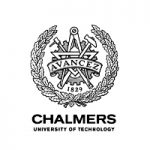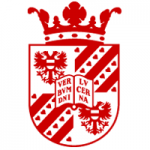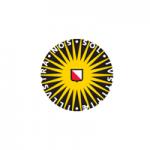项目介绍
We are seeking a postdoc to develop efficient but realistic simulation algorithms for noise processes in quantum computers based on superconducting circuits. Of particular interest will be to consider such simulations in the context of quantum error correction stabilizer codes or other quantum algorithms where mid-circuit measurements and qubit resets are important. The work is expected to build on existing frameworks but with emphasis on techniques for classical systems hardware-aware acceleration including CPU parallelism, offloading to GPUs, and potentially developments of dedicated FPGA-based accelerators.
Applications may range in scope from Pauli simulations to full density matrix simulations depending on the use cases. The adaptation of realistic simulations of noise for the in-house built hardware, including a 25 qubit chip, is also expected to be part of the project.
Information about the project
This project is part of QuantumStack, a 5-year project funded by the Swedish Foundation for Strategic Research, with the aim of developing a full software stack for programming quantum computers. The project is integrated with the Wallenberg Centre for Quantum Technology (WACQT), a 12-year, billion-SEK initiative started in 2018 with the purpose of advancing Swedish academia and industry to the forefront of quantum technology, and to build a Swedish quantum computer. Our ambitious goal at Chalmers is to build this quantum computer with 100 superconducting qubits and to apply it to real computational problems that cannot be efficiently solved on a conventional computer. Such computationally hard problems are found, e.g., in optimization, quantum chemistry, materials science, machine learning, etc.
Building a quantum computer requires a multi-disciplinary effort involving experimental and theoretical physicists, electrical and microwave engineers, computer scientists, software engineers, and researchers in materials science and nanotechnology. We are developing the superconducting quantum devices, control circuits, firmware, and methods required to make the quantum computer a reality.
This development takes place is in a close, fruitful collaboration between experimentalists in the Quantum Technology Laboratory (QTL) and theorists at the Applied Quantum Physics Laboratory (AQPL) and the Department for Computer Science and Engineering. In this collaboration, the main tasks of the theorists are to help model the hardware and to develop application use cases for the quantum processor. Our team is also a prominent partner in the internationally competitive OpenSuperQ collaborative project working to build a quantum computer within the EU Flagship on Quantum Technology.
Our WACQT team at Chalmers currently has about 100 members (faculty, permanent research staff, postdoctoral researchers, PhD students, and undergraduate students) and is expanding. WACQT is committed to promoting career development, diversity, and gender equality through networking and supporting activities.
Information about the division and the department
At Chalmers, this particular part of the project will be run in the Division of Computer Networks and Systems within the Department of Computer Science and Engineering. Within the Division we have four faculty members, four postdocs and eleven PhD students who are engaged in research in computer architecture. The funding for the group comes mostly from national and EU projects. The faculty members have been awarded prestigious grants for their research such as the ERC advanced grant and also participate in top EU projects such as the European Processor Initiative (EPI) and other EuroHPC projects. The results of the research work are published in highly-ranked conferences and journals in the field.
International students rate the Chalmers education experience as one of the best in Europe, according to results from the International Students Barometer. The quality of teaching and assessment receives particular praise. Additionally, when asked if the University was overall ‘a good place to be’ students’ responses put Chalmers at number one in the world. Chalmers has launched a MSc program in High-Performance Computer Systems and in Data Science, putting the topic of this PhD project in the center of gravity of educational efforts.
Major responsibilities
Your major responsibility as a postdoc is to develop efficient simulation algorithms for quantum computers. This will include both analytical and numerical work, as well as the execution of these algorithms on advanced hardware for optimizing the execution. You may also help in supervising PhD students and/or master’s students working on related topics.
Qualifications
- PhD in Computer Science, Computer Engineering, Physics, or neighboring fields (obtained before employment begins)
- Excellent communication skills in written and spoken English
- Ability to program in high-level languages such as Python and C/C++
- Knowledge of GPU programming.
- Experience in application performance profiling.
Desired qualifications:
- Experience from working on quantum computing
- Experience in FPGA development.
Contract terms
This postdoc position is a full-time temporary employment for twoyears.
We offerChalmers provides a cultivating and inspiring working environment in the coastal city of Gothenburg.
Read more about working at Chalmers and our benefits for employees.
Chalmers aims to actively improve our gender balance. We work broadly with equality projects, for example the GENIE Initiative on gender equality for excellence. Equality and diversity are substantial foundations in all activities at Chalmers.
Application procedure
The application should be written in English and be attached as PDF-files, as below. Maximum size for each file is 40 MB. Please note that the system does not support Zip files.
CV: (Please name the document as: CV, Surname) including:
• CV, include complete list of publications
• Previous teaching and pedagogical experiences
• Two references that we can contact.
Personal letter: (Please name the document as: Personal letter, Family name)
1-3 pages where you:• Introduce yourself• Describe your previous research fields and main research results• Describe your future goals and future research focus
Other documents:
• Attested copies of completed education, grades and other certificates.
Use the button at the foot of the page to reach the application form.
Please note: The applicant is responsible for ensuring that the application is complete. Incomplete applications and applications sent by email will not be considered.
Application deadline: 28 February 2025
For questions, please contact:
Prof. Pedro Trancoso, Computer and Network Systems division at CSE,
Ppedro@chalmers.se
Assoc. Prof. Mats Granath, University of Gothenburg,
Mats.granath@physics.gu.se
*** Chalmers declines to consider all offers of further announcement publishing or other types of support for the recruiting process in connection with this position. ***
URL to this page
https://www.chalmers.se/en/about-chalmers/work-with-us/vacancies/?rmpage=job&rmjob=13592&rmlang=UK
联系方式
电话: +46 (0)31-772 10 00相关项目推荐
KD博士实时收录全球顶尖院校的博士项目,总有一个项目等着你!





